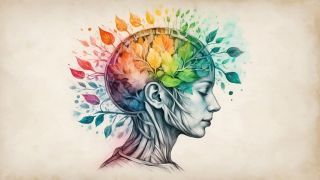SSRIs
AI in Precision Medicine: Predicting Antidepressant Outcomes
AI uses MRI and clinical data to predict effectiveness of depression treatment.
Posted February 8, 2024 Reviewed by Jessica Schrader
Key points
- A new study showed how an AI algorithm could predict how well an antidepressant would work for a patient.
- AI found that increased blood circulation in a certain region of the brain is an indicator of drug efficacy.
- With the help of AI, researchers have created a useful tool for precision medicine for depression.

One of the most promising areas in precision medicine and health care is the use of artificial intelligence (AI) machine learning as a tool to assist clinicians in predicting patient treatment outcomes for personalized treatment. A new Amsterdam UMC and Radboudumc study shows how an AI algorithm can predict how well an antidepressant will work for a patient with depression up to eight weeks sooner using MRI brain scans and clinical data.
Depression, also known as major depressive disorder (MDD), is a common mood disorder that affects roughly 280 million people globally, according to the Institute of Health Metrics and Evaluation Global Health Data Exchange. In the U.S., major depression is one of the most common mental disorders, and antidepressant medications are a commonly used treatment, according to the National Institute of Mental Health (NIMH).
A depressed patient may need to try more than one type of antidepressant in order to find the right individual fit and it typically takes anywhere from one to two months for antidepressant medication to work, according to the NIMH. Thus, having a way for clinicians to predict patient responses to antidepressant medication faster could accelerate the path to restoring the patient’s well-being, and potentially make a life-saving difference. Depressed patients are at greater risk of developing physical illnesses. For example, depressed patients are at 40% greater risk than the general population for metabolic diseases and cardiovascular disease, according to The Lancet Psychiatry Commission: a blueprint for protecting physical health in people with mental illness.
There are different types of antidepressant medication approved by the U.S. Food and Drug Administration (FDA) such as N-methyl D-aspartate (NMDA) Antagonist (esketamine), monoamine oxidase inhibitors (MAOIs), neuroactive steroid gamma-aminobutyric acid (GABA)-A receptor positive modulator (brexanolone), tricyclic and tetracyclic antidepressants, serotonin and norepinephrine reuptake inhibitors (SNRIs), atypical antidepressants (trazodone, nefazodone), and selective serotonin reuptake inhibitors (SSRIs).
First-line treatment options for depression include psychotherapy, cognitive behavioral therapy, individual therapy, group therapy, and second-generation antidepressant medication such as atypical antidepressants, SSRIs, SNRIs, and serotonin modulators, according to Pharmacologic Treatment of Depression published in American Family Physician in 2023.
The Amsterdam UMC and Radboudumc researchers focused their efforts on one type of SSRI called sertraline, an antidepressant that increases the quantity of the mood-regulating hormone serotonin in the brain. Sertraline is a commonly prescribed selective serotonin reuptake inhibitor and Zoloft is the brand name.
Serotonin is a neurotransmitter that transmits signals between neurons. Selective serotonin reuptake inhibitors help improve the transmission of signals between brain nerve cells by increasing available serotonin by blocking the reabsorption of serotonin by the neurons. In addition to sertraline, other SSRI medications include fluoxetine, escitalopram, citalopram, paroxetine, vortioxetine, and vilazodone per the FDA.
The MRI brain scans and clinical data used in this study came from 229 patients diagnosed with major depressive disorder from a prior study called the Establishing Moderators and Biosignatures of Antidepressant Response in Clinical Care (EMBARC)—a clinical trial for depression led by the University of Texas (UT) Southwestern Medical Center in collaboration with principal investigators affiliated with Columbia University and Massachusetts General Hospital.
For this new study, the researchers in Amsterdam created an AI algorithm to predict the effect of sertraline. The researchers evaluated at the baseline and after a week of treatment with sertraline and placebo. Amsterdam UMC Professor of Neuroradiology Liesbeth Reneman is the corresponding author of the study, and her co-authors include Eric (Henricus) Ruhé, Henk-Jan Mutsaerts, Ivan Maximov, Inge Groote, Atle Bjørnerud, Henk Marquering, Matthan Caan, and Maarten Poirot.
The researchers found that the accuracy of the AI algorithm was better with multimodal versus unimodal models. In artificial intelligence, multimodal models are deep learning models that relate data from various sources. In this case, the researchers combined multimodal MRI data with clinical data, and perfusion imaging was key.
The AI indicated that increased blood circulation in the emotion regulation region of the brain, the anterior cingulate cortex, is an indicator of drug efficacy, according to Radboudumc psychiatrist Ruhé in an Amsterdam UMC article.
Using AI machine learning, clinical data, and MRI brain scan technologies, researchers have created a useful tool to deliver precision medicine for depression. With this proof-of-concept, clinicians may have a way to offer more personalized treatment in a timely manner, offering hope of better outcomes for those with depression in the future.
Copyright © 2024 Cami Rosso. All rights reserved.




